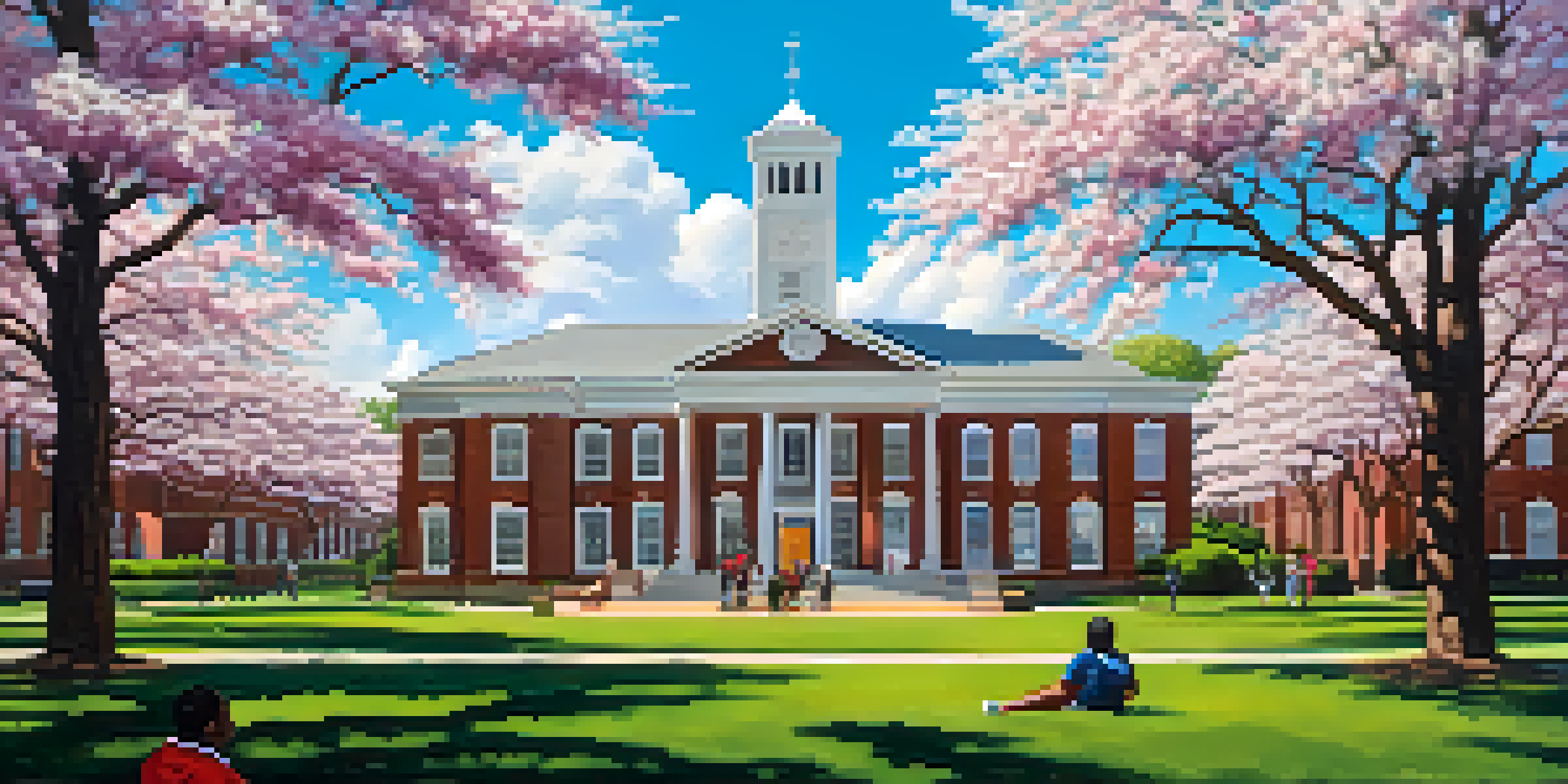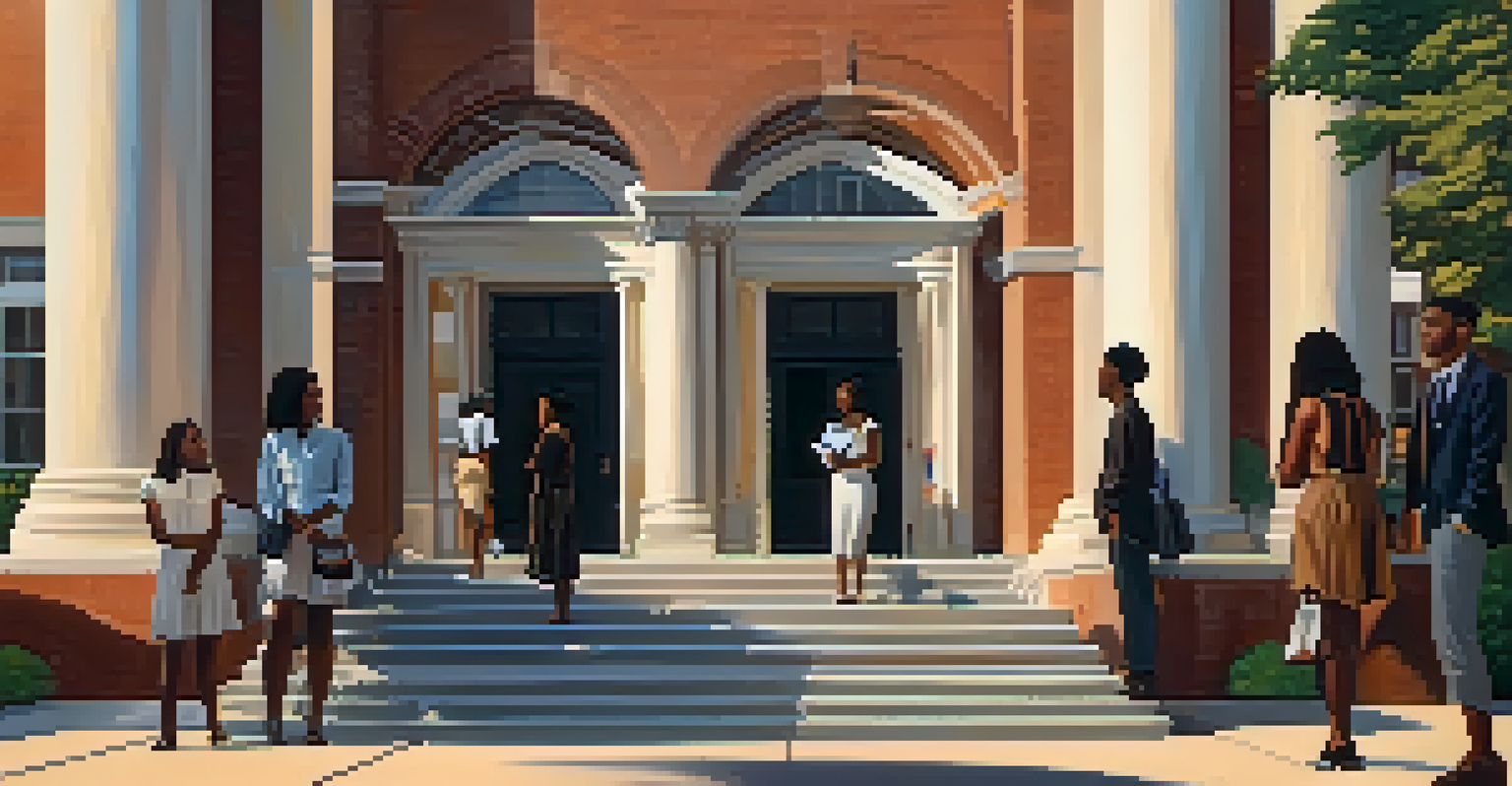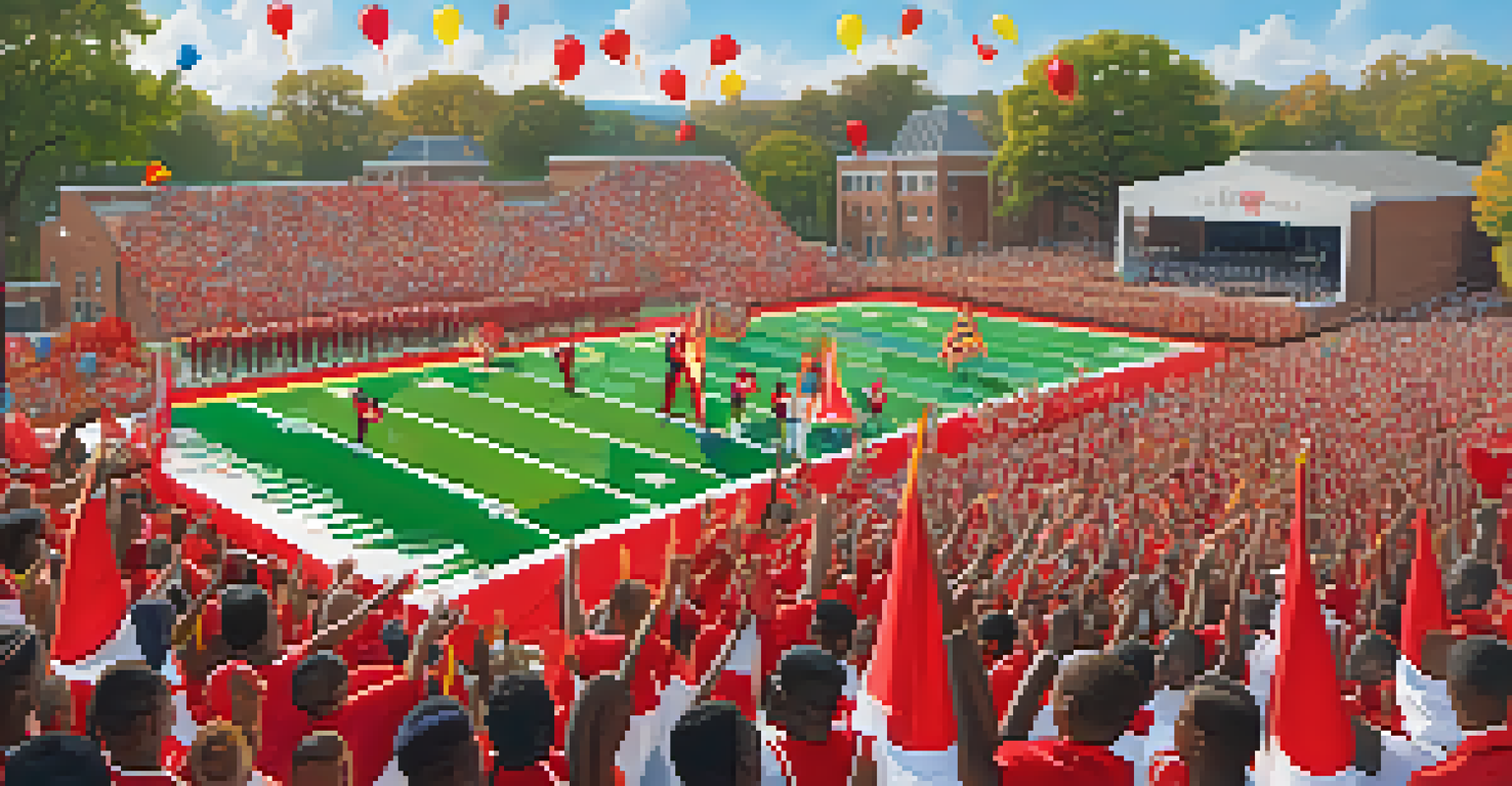Atlanta HBCUs: Pioneers in Higher Education for Black Students

The History of HBCUs in Atlanta
Historically Black Colleges and Universities (HBCUs) have played a crucial role in providing higher education opportunities for Black students, especially in the South. Atlanta is home to several prominent HBCUs, including Morehouse College and Spelman College, which have rich histories dating back to the 19th century. These institutions were founded during a time when access to education for Black individuals was severely limited, paving the way for generations of leaders and innovators.
Education is the most powerful weapon which you can use to change the world.
The establishment of these colleges was a response to the systemic barriers that Black individuals faced in accessing quality education. For instance, Morehouse College was founded in 1867 to provide a liberal arts education to Black men, emphasizing character development alongside academic excellence. This foundational commitment to empowerment continues to resonate through the ethos of Atlanta's HBCUs today.
As we delve deeper into the impact of these institutions, it becomes clear that their significance extends beyond education; they have served as cultural hubs and community pillars as well. The legacy of HBCUs in Atlanta is not just about academic achievement but also about fostering a sense of identity and belonging among Black students.
Notable HBCUs in Atlanta
Atlanta boasts a diverse array of HBCUs, each with unique contributions to education and society. Morehouse College, renowned for its leadership programs, has produced countless influential figures, including Dr. Martin Luther King Jr. and filmmaker Spike Lee. Meanwhile, Spelman College, an all-women's institution, is celebrated for its focus on empowering Black women through education and activism.

Clark Atlanta University, another prominent HBCU in the area, combines a rich history with a commitment to research and community engagement. Its programs in public health and social work are particularly noteworthy, addressing essential social issues facing the African American community. Each of these institutions plays a vital role in shaping the future leaders of tomorrow.
HBCUs Empower Black Communities
Historically Black Colleges and Universities in Atlanta have been instrumental in providing education and fostering leadership among Black students.
Beyond academia, these HBCUs foster vibrant campus cultures that celebrate Black history and excellence. Events such as homecoming, step shows, and cultural festivals create connections among students and alumni, reinforcing a sense of pride in their heritage.
The Role of HBCUs in Black Empowerment
HBCUs have long been instrumental in promoting empowerment and social justice within the Black community. They serve as incubators for leadership, encouraging students to engage with pressing social issues and advocate for change. This commitment is evident in the curriculum, which often emphasizes social responsibility and community service.
The function of education is to teach one to think intensively and to think critically. Intelligence plus character – that is the goal of true education.
For instance, many HBCUs in Atlanta require students to participate in service-learning projects, fostering a sense of civic duty and engagement. These experiences not only enrich students' education but also empower them to effect positive change in their communities. It's a powerful reminder that education can be a catalyst for social transformation.
Moreover, HBCUs cultivate networks of support that last a lifetime. Alumni often return to mentor students, providing guidance and resources that help pave the way for future success. This cycle of empowerment is a hallmark of the HBCU experience, creating a strong sense of community that extends well beyond graduation.
Cultural Significance of Atlanta HBCUs
The cultural significance of Atlanta's HBCUs cannot be overstated. They are not just centers of learning; they are vibrant communities that celebrate African American culture, history, and achievements. Events such as cultural festivals, lectures, and art exhibits enrich the local community and foster a deeper understanding of Black heritage.
For example, Spelman College's Museum of Fine Art showcases works by Black artists, making it an essential cultural resource in Atlanta. Similarly, Morehouse College often hosts speakers and events that highlight the contributions of African Americans across various fields, from science to the arts. These institutions act as cultural beacons that illuminate the richness of Black history and creativity.
Cultural Hubs in Atlanta
HBCUs like Spelman and Morehouse serve as vibrant cultural centers that celebrate and promote African American history and achievements.
Through their programming and outreach, Atlanta's HBCUs engage with the wider community, promoting inclusivity and dialogue. This cultural engagement not only benefits students but also enhances the city's cultural landscape, making it a more vibrant and diverse place to live.
Challenges Faced by HBCUs Today
Despite their historical significance, Atlanta's HBCUs face numerous challenges in today's educational landscape. Funding disparities and resource limitations pose significant obstacles, affecting their ability to provide comprehensive programs and services. Many HBCUs struggle to compete for financial support with larger, predominantly white institutions, which can impact the quality of education offered.
Additionally, enrollment numbers have fluctuated in recent years, prompting HBCUs to innovate and adapt to changing demographics and student needs. Schools are increasingly focusing on recruitment strategies that highlight their unique offerings and the supportive environments they provide. This proactive approach is vital for ensuring that these institutions continue to thrive.
Moreover, as the landscape of higher education evolves, HBCUs must also embrace technology and modern teaching methods. By incorporating online learning and digital resources, they can expand their reach and offer flexible options for students, making education more accessible to a diverse range of learners.
The Future of HBCUs in Atlanta
Looking ahead, the future of Atlanta's HBCUs appears promising, despite the challenges they face. These institutions are actively seeking new partnerships and funding opportunities to enhance their programs and resources. By collaborating with businesses, nonprofits, and government agencies, they can create innovative solutions that address the needs of their students and communities.
Furthermore, HBCUs are increasingly emphasizing the importance of STEM (science, technology, engineering, and math) education, preparing students for high-demand careers in a rapidly changing job market. This focus not only benefits students but also contributes to the overall economic development of the Atlanta area.
Facing Modern Challenges
Despite their significance, Atlanta's HBCUs confront challenges such as funding disparities and evolving educational demands.
As HBCUs continue to adapt and evolve, their commitment to academic excellence and social justice remains unwavering. With a rich legacy and a vision for the future, Atlanta's HBCUs are poised to remain at the forefront of higher education for Black students, shaping the leaders of tomorrow.
Celebrating the Legacy of Atlanta HBCUs
As we reflect on the significant contributions of Atlanta's HBCUs, it's essential to celebrate their legacy and the impact they have had on society. These institutions have not only educated countless individuals but have also played a vital role in advancing civil rights and social justice. The stories of alumni who have gone on to make a difference in their communities are a testament to the transformative power of education.
Events such as homecoming celebrations, alumni gatherings, and community outreach initiatives highlight the enduring bond between HBCUs and their graduates. These gatherings serve as a reminder of the shared experiences and values that unite the HBCU community, fostering a spirit of collaboration and support.

In honoring the legacy of Atlanta's HBCUs, we also recognize the importance of continuing their mission. By supporting these institutions, we invest in the future of education for Black students and contribute to a more equitable society. The journey of Atlanta's HBCUs is ongoing, and their impact will undoubtedly resonate for generations to come.